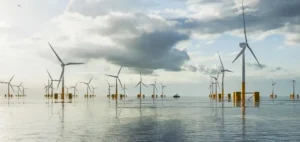Orsted, a renowned multinational in the green energy sector, recently faced a series of challenges that led to the decision to cancel the Ocean Wind 1 and 2 projects. These wind farms were initially intended for installation off the northeast coast of the United States. They represented a total capacity of 2,248 gigawatts, enough to power more than a million homes. This cancellation will result in a considerable impairment of assets, valued at DKK 28.4 billion, or around $4 billion.
Rising interest rates
Several factors contributed to this decision. One of the major problems was supply delays, which hampered project progress. In addition, rising interest rates in the United States have had a negative impact on the overall cost of projects, making them less profitable to complete.
In addition, Orsted was unable to obtain all the tax benefits it had hoped for from the authorities, and encountered difficulties in obtaining the necessary building permits.
Implications for New Jersey
This cancellation represents a significant setback for local authorities, particularly in the New Jersey region where the projects were originally planned.
Impact on Biden’s Green Energy Goals
It also represents a challenge for US President Joe Biden, who has pledged to promote energy transition in the United States. Orsted’s withdrawal comes on the same day that the Biden administration gave the green light to the largest offshore wind energy project off the coast of Virginia. Soaring costs threaten to derail several energy programs in the United States, as well as in Europe.
Renewable Energy Cost Concerns
It should be noted that in October, the State of New York refused to allow Orsted, Equinor and BP to increase their contracts for the creation and operation of wind farms, a request made by these European companies. These companies are currently studying the economic viability of their projects before making any further commitments.
Ongoing commitment to the Rhode Island Project
However, it is important to emphasize that not all renewable energy projects are on hold. Orsted has maintained its commitment to working in partnership with American energy company Eversource to install a 704-megawatt offshore farm off the coast of Rhode Island in the northeastern United States. Commissioning is scheduled for 2025.
In conclusion, Orsted’s decision to cancel its offshore wind farm projects in the USA highlights the challenges facing renewable energy projects in the country. It raises questions about the viability of these initiatives, while also having implications for local authorities and the Biden administration’s green energy goals. Despite these obstacles, the renewable energy sector continues to play a key role in the transition to cleaner energy in the United States.






















